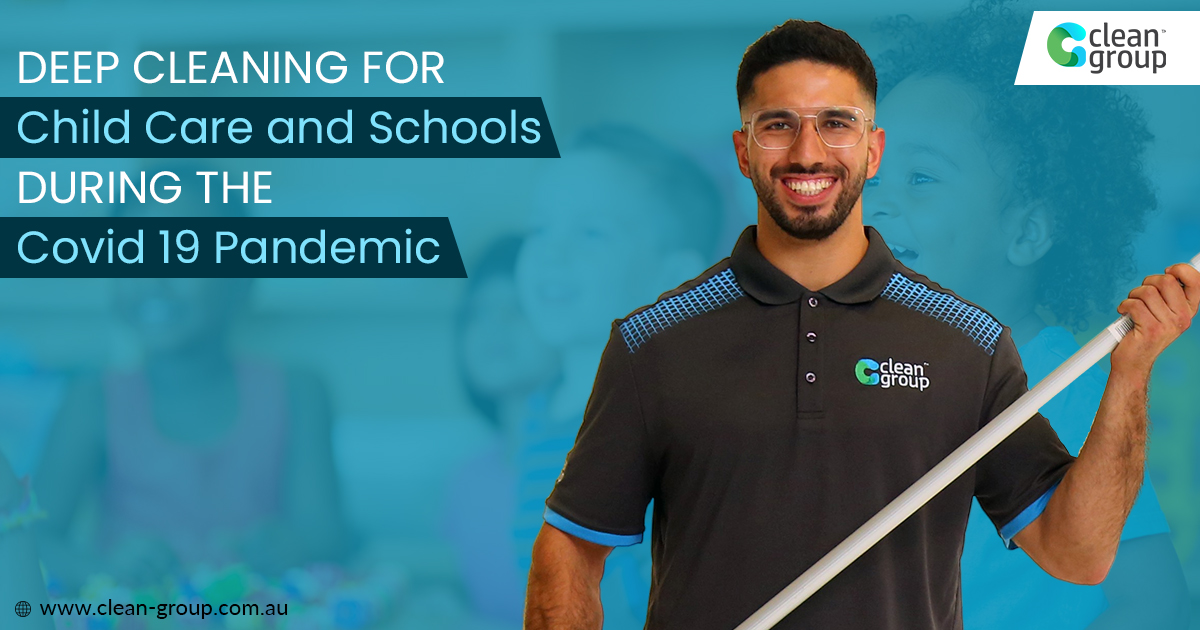We will help you understand the benefits of Covid deep cleaning Sydney and providing best practices for your education facility’s most common rooms. You may use these in any of the areas that we will not talk about in this article.
What Are the Benefits of Deep Cleaning for Child Care and Schools?
Let us talk about the reason why we are doing all these precautions whil also welcoming your Visitors During Covid 19? It will take rigorous study and some time to understand the virus that has caused this pandemic wholly. Here are our fundamental understanding of the CoronaVirus:
- Covid 19 can stay active floating in the air for up to 3 hours.
- CoronaVirus can stand on cardboard surfaces for up to 24 hours.
- The virus can live on copper surfaces for up to 4 hours.
- It can also live on plastic and steel surfaces for up to 2 to 3 days.
This study has not been published or pre-reviewed, which means that these estimates can vary on a downward or upward trend. It points to the fundamental fact that, yes, cleaning and disinfection of surfaces are an essential part of fighting Covid 19 pandemic. Everything about commercial Coronavirus cleaning and sanitising can be found in our blog.
Deep Cleaning Has a Lot of Benefits.
- One of the apparent benefits is the appearance of your facility. We had discussed in the past that the aesthetics of your business affect the morale of the employees working for you. Faculty members, students, and parents all feel better in a school that feels and looks clean. It can be a glaring reason now that viruses are a concern to the significant public.
- There are also numerous health benefits that you can benefit from the deep cleaning of the child care centre and schools. Regular deep cleaning reduces the number of bacteria, dust, allergens, dirt, pollen, and more.
- Deep cleaning is also useful in fighting viruses like Flu, which can survive up to 48 hours on surfaces
- Effective benefits of deep cleaning promise quality indoor air quality because it reduces the contaminants in the air that circulate in a school or a building facility. You need to consider cleaning and sanitising products. Look for eco-friendly cleaning products. Cleaning products’ toxicity can have adverse effects that you need to be cautious of. Cleaning products often leave a residue. This is the reason why you need to choose a safe cleaning product for school cleaning.
- Remember that disinfectants achieve their kill claims through the chemicals you do not want to have around, especially if you are working in a childcare setting. Always picking a disinfectant gives minimal residue. This chemical will make it ideal for deep cleaning. It is a guarantee that it will leave your floors cleaner and safer.
Best Practices in Deep Cleaning Schools and Child Care
In this part of the article, we will focus on cleaning tips beyond your cleaning regimen. We want to cover the basics of effective and regular cleaning because they are the foundation of a good deep clean. Cleaning removes dirt and debris, allowing the disinfectant to work effectively.
Cleaning, sanitising, and disinfecting are different things.
Differences between cleaning chemicals:
- Cleaner – removes dirt and soil from the surface.
- Sanitiser – reduces the number of bacteria to a safe level.
- Disinfectant – kills, bacteria, viruses, and fungi
- Virucide – kills the virus.
- Sterilant – eliminates all fungi, bacteria, viruses, and spores.
This chart will help you decide which is the right product to use for what you are trying to accomplish.
Start your cleaning with a light-duty cleaning solution for most areas. Hit the high touch points and heavily soiled areas with the heavy-duty cleaning solution.
Cleaning of Restrooms
- Focus on cleaning and disinfecting or sanitising restrooms from ceiling to floor.
- Flushing of toilets can spray contaminants to a great distance. Using a pump-up sprayer can help cover a larger surface area more quickly. Always use proper PPE as advised by the manufacturer. Make it a habit to wear gloves when cleaning restrooms.
- Begin by dusting high surfaces. Dust will settle on the ground.
- Always clean the high-touched surfaces. Wipe it dry and then spray with sanitiser or disinfectant so you can leave it wet while cleaning the other areas of the restroom.
- Disinfect the inside and outside of all partitions, urinals, and toilets.
- Make sure to clean the underside of sinks, lavatories, and exposed pipes.
- Be mindful of cross-contamination in between high-touch points and toilet areas. We recommend colour-coded microfibre or disposable paper cloths.
- For grout cleaning, apply the cleaning chemical on the floor and agitate lightly with a manual deck brush or your preferred floor cleaning tools. Mop up or use your equipment to remove the residue and dirt.
Cleaning of Carpets and Floors
The carpet is an obvious magnet of dirt, mould, and bacteria. School closures are a great time to do carpet extraction. Commercial cleaners offer different methods in achieving this cleaning requirement using other cleaning products and equipment.
This is also the best time to clean away all the build-up and grime from the floors. Residue can build up on the floors if you have been using a cleaning product that leaves behind different residues.
You can use a pre-spray method for carpet extraction.
- Get a pop-up sprayer to wet the whole carpet with the cleaner of your choice.
- Let it sit wet.
- Extract with clean water.
Another expert tip in cleaning hard floors is beginning at the outside edges and working your way inward. This avoids the dirt being pushed out into the corners and outer edges of the floor.
Cleaning of HVAC System
- We recommend changing air filters if you have not done that recently. Clean air vents help prevent the spread of contaminants through the air. A school needs to have its systems inspected to make sure that they function correctly.
- If the air conditioning or fan is being used, make sure to have it cleaned also
Cleaning of Gyms and Lockers
Give the same attention to cleaning gyms and locker areas. Focus on Commercial Cleaning Services Sydney and sanitising from ceiling to floor.
- Always be sure to use proper PPE as advised by the manufacturer.
- Clean and sanitise or disinfect the surfaces of all equipment. There are frequently touched surfaces all over the gym and the locker room.
- Pay special attention to the lockers’ tops, drains, showers, the undersides of benches, and any partitions. Foaming spray heads and sprayer nozzles can be helpful for foam cleaning and descaling on vertical showers.
Cleaning of Windows and Lights
- Clean the windows inside and out. Use a light-duty cleaning solution that will be streak-free when dried.
- You may need a heavy-duty cleaner for dirty internal windows or outside of the windows.
- Detail all light fixtures. Be sure that it is free of dead bugs that can be collected inside the light fixtures. Always use proper safety procedures and practices when reaching for high areas, including extended dusting and cleaning.
Cleaning of Classrooms
- Focus your child’s care and school deep cleaning on areas that might not get attention during the covid cleaning services in Sydney NSW regimen.
- Clean and sanitise high-touched areas like desks, light switches, and door knobs and latches.
- Move trash cans away from the wall. Be sure to clean and sanitise the wall and floor around it and behind it. Clean the trash can itself.
- Clean the underside of desks and chairs. Remember to clean any cabinet and treat any latches or pulls on cabinetry as a high-touched surface.
You should always be mindful of your cleaning staff’s safety. It is essential when you are adapting new cleaning protocols and procedures. Locate the safety data sheet for all new cleaning products.
Be sure that your staff are trained in their proper usage. Provide your team with the appropriate PPE for every task that they need to complete. PPE includes goggles, masks, gloves, and whatever PPE the cleaning manufacturer recommends.
Encourage your cleaning team to stretch before their shift. During the Covid-19 cleaning in Sydney, they may be required to reach further than usual. They have to have well-maintained equipment such as ladders or duster extensions to reach high areas.

